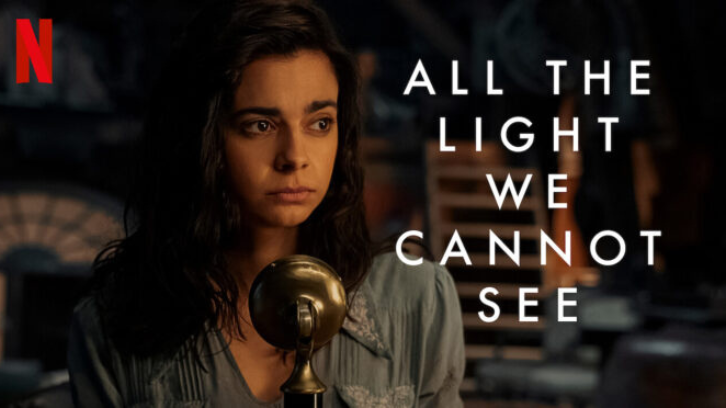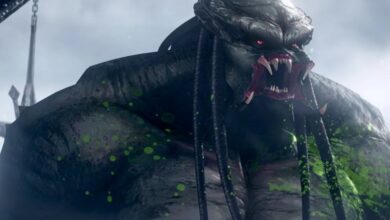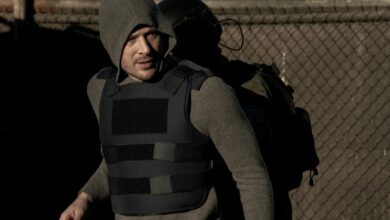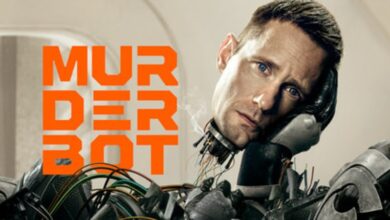
Although it has been over two months since the premiere of this Netflix’ miniseries of only four episodes, we can say that it is a timeless story that is good to remember and keep in mind at any time, and what better than at the beginning of the year, time to renew our hope for a new start.
Based on the novel of the same name by American writer Anthony Doerr, published in 2014, All the Light We Cannot See tells the story of Marie-Laure LeBlanc (Aria Mia Loberti), a young blind girl surviving alone in Saint-Malo, a town in France, during World War II, who makes coded radio transmissions for the resistance while waiting for the return of her father (Mark Ruffalo) and uncle (Hugh Laurie); Werner Pfennig (Louis Hoffman), a German soldier and radio expert who is stationed in the same place, and the connection created between the two through the radio, not only in their present, but also in their past.
Although at the beginning it might not be very clear, as the story develops, the meaning of the title becomes evident, since in a radio broadcast that the main characters listened to when they were children, “the professor” in charge of those, explains that the light that cannot be seen is the most important, it’s the one that we keep inside us despite the adversities, even though everything around us looks dark; I think that, in different moments, the characters symbolize that light of hope for themselves and for others, and that although sometimes it’s very difficult to find, it keeps them strong and fighting until the end.
The series in general left me with a good impression, even though at the beginning it may be a bit frustrating the fact that the main characters are French and German, live in France and Germany, but speak English; but as the story goes on, that was no longer a determining factor, at least for me, and did not prevent me from getting immersed in the plot and getting interested in what was happening with them.
Something that I liked is that the metaphors that are presented throughout the plot, manage to convey the message very clearly by relating it, no just to the light, but with the world of radio, connecting the characters through their voice and hearing, across the past and present and different places in the world, and in the end manage to bring together all the stories. In addition, another detail that I think is important to highlight is that different perspectives are presented, because we have a character like Reinhold von Rumpel (Lars Eidinger), who is the archetype of the Nazi villain who steps over everything and everyone to get what he wants, but we also have Werner, a soldier who is forced by circumstances to do many terrible things but, despite everything, he stands firm in his convictions and values, and I think that showing both sides of the coin is a strength of this story.
The series also seems to me to be well done in terms of editing, as it manages to make the narrative understandable and helps you to not get lost in those time jumps, when the past is mixed with the present. Speaking a little more about the audiovisual language, I must say that Tobias A. Schliessler’s cinematography is beautiful, as the coloring of the images helps to distinguish the bright moments that were lived before with the dark ones during the war. Likewise, I believe that the main element that managed to move me is the music of James Newton Howard, though I especially like the use of Debussy’s Clair de Lune, which seems to me one of the most nostalgic pieces I have heard and that can convey sadness, calmness and hope at the same time.
If you haven’t seen this miniseries yet and you like WWII related topics or are looking for optimistic and hopeful stories or need an incentive to continue believing in the world or in humanity, I would recommend you watch it. And if you’ve already seen it, I invite you to share your thoughts in the comment section.
Source link








